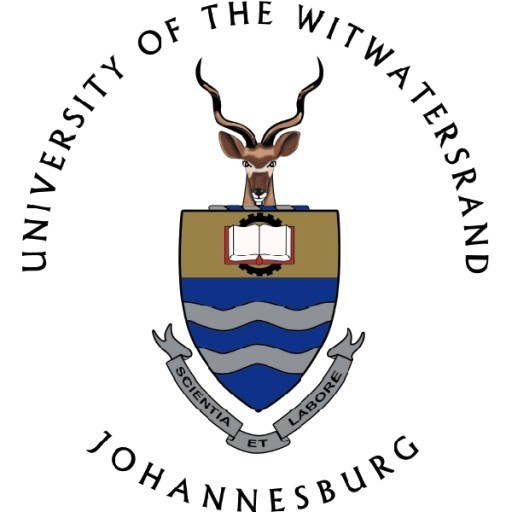Photos of university / #pennstate
The Community and Economic Development (CED) program at The Pennsylvania State University is designed to prepare professionals to foster sustainable growth and positive change within communities and regions. Rooted in the principles of economic development, public policy, planning, and community engagement, this program offers students a comprehensive understanding of the strategies needed to address complex social and economic issues. Through a combination of coursework, practical field experiences, and research opportunities, students gain the skills necessary to assess community needs, develop effective programs, and implement initiatives that promote economic vitality and social well-being. The curriculum emphasizes a multidisciplinary approach, integrating insights from economics, sociology, public administration, and environmental planning to equip graduates with a holistic perspective. Students have access to a diverse range of electives and specialized tracks that allow them to focus on areas such as regional planning, small business development, nonprofit management, and policy analysis. The program encourages active collaboration with local governments, nonprofits, and private sector organizations, providing real-world experience through internships and community projects. Faculty members are experts in their fields, committed to mentoring students and supporting innovative research that addresses current economic and community challenges. Graduates of the Community and Economic Development program are well-positioned for careers in government agencies, community development organizations, economic development corporations, consulting firms, and non-profit organizations. They are equipped to design and implement strategies that stimulate economic growth, enhance community resilience, and improve quality of life for diverse populations. With a focus on fostering inclusive and sustainable development, the program aims to produce leaders who can positively influence their communities and shape effective policies at local, regional, and national levels. Through its emphasis on practical skills, interdisciplinary knowledge, and community engagement, the Community and Economic Development program at Penn State prepares students to become catalysts for meaningful and lasting change in a rapidly evolving world.
The required curriculum includes coursework in principles of economic development, community structure and processes, land use, methods for effective community development, and statistics. Plus, students may take elective courses in other disciplines based on their interests.
The graduation requirements for the MPS degree include the completion of 30 graduate credits, including required CEDEV courses, elective course(s), statistics course, and the capstone integrative paper. A 3.0 GPA is also required for completion of the MPS degree. All courses are offered through the World Campus; a broadband Internet connection is required.
Students may begin their coursework during any academic semester after admission to the program. Most students working full-time take one to two courses per semester; students should plan to commit 10 to 12 hours per week per graduate course to be successful in the program.
Courses
| Course Nbr | Course Title | Typically Offered |
|---|---|---|
|
XFR500 |
CEDEV-Transfer Credit Course XXX Level |
|
|
XFR800 |
CEDEV-Transfer Credit Course XXX Level |
|
|
430 |
Principles of Local Economic Development |
Fall & Spring |
|
452 |
Community Structure, Processes and Capacity |
Fall & Spring |
|
500 |
Community and Economic Development: Theory and Practice |
Fall & Spring |
|
505 |
Leadership Development |
All Semesters |
|
505 |
Leadership Development |
Fall Only |
|
509 |
Population, Land Use, and Municipal Finance |
All Semesters |
|
516 |
Change in Rural Society |
Fall & Spring |
|
517 |
International Rural Social Change |
Fall Only |
|
533 |
Rural Development Research Methods and Topics |
Spring Only |
|
560 |
Regional Development: Principles, Policy, and Practice |
Spring Only |
|
567 |
Resilient Communities and Environments |
Fall Only |
|
575 |
Methods and Techniques for Community and Economic Development |
Fall & Spring |
|
576 |
Applications and Practices for Community and Economic Development |
Summer Only |
|
580 |
Community and Economic Development Research Application and Practice |
All Semesters |
|
595 |
Internship |
Fall Only |
|
596 |
Individual Studies |
All Semesters |
|
596 |
Individual Studies |
Summer & Fall |
|
597 |
Special Topics |
Spring & Summer |
|
597C |
**SPECIAL TOPICS** |
All Semesters |
Applications for the MPS in Community and Economic Development (CEDEV) are accepted for each academic semester. Students should apply for the semester that they wish to begin study in the graduate program. The application submission/completion deadlines are as follows:
- Fall semester: June 15
- Spring semester: September 30
- Summer semester: March 15
A 3.00 grade point average (on a 4.00 scale) for the most recent two years of college/university education, or with an advanced degree from an accredited institution, is preferred for admission to the MPS program in Community and Economic Development. Applicants are expected to have completed 6 credits in social sciences, preferably 3 in economics and 3 in sociology, and 3 credits in statistics in undergraduate work.
Other admission requirements include the following:
- Statement of purpose describing professional experiences and education, career goals, and how the Master's degree in CEDEV will enable applicant to meet their objectives
- Current resume or vitae
- Letters of recommendation from three references
-
References may be of academic, professional, or character assessment.
-
The online application system allows applicants to identify the references. Please provide a valid email address for each reference listed. Each reference will receive an email with instructions detailing how to submit the recommendation letter. Please note: References will be contacted via the online system only after the application has been submitted by the applicant.
- If references prefer to mail or email letters of recommendation directly to us, they may do so via email at CEDEVinfo@psu.edu or mail at the address provided below. References must be identified within the online application system even if they will not utilize the system to provide the recommendation letter.
-
- Submission of copies of official transcripts/documents (for institutions outside the U.S. documents may include marksheets, record of courses, degree/study certificate, original diploma, etc) from all post-secondary institutions attended and official English translation if the language of instruction is not English).
- Test of English as a Foreign Language (TOEFL) score, if applicable. TOEFL scores must be submitted by all international applicants unless otherwise specified. Please see the Language Proficiency section of the International Students page of the Penn State Graduate School website for graduate program requirements. Visit the TOEFL Web site or call 609-771-7100 for more information. Penn State's institutional code is 2660.
- $65 nonrefundable application fee
The Community and Economic Development program at The Pennsylvania State University offers a variety of financing options to support students throughout their academic journey. Tuition costs vary depending on residency status, course load, and enrollment status, with in-state students benefiting from lower rates compared to out-of-state students. The university provides detailed fee structures on its official website, ensuring transparency for prospective students. In addition to standard tuition, students should consider additional expenses such as textbooks, learning materials, and technology fees, which are essential for successful participation in the program.
Financial aid opportunities are widely available for eligible students through federal and state grants, scholarships, and university-specific aid programs. The FAFSA (Free Application for Federal Student Aid) must be completed annually to determine eligibility for various financial support options, including Pell Grants and work-study programs. The Penn State Scholarship Office manages a comprehensive list of scholarships targeted at students pursuing community development and related fields, with awards based on merit, need, or specific demographic criteria.
Graduate students may also consider student loans as a viable financing method. The university participates in federal loan programs such as the Direct Unsubsidized Loan, requiring students to complete entrance counseling and promissory notes. Private loans can be pursued through approved financial institutions, but these often have higher interest rates and less flexible repayment terms.
Furthermore, some students secure funding through assistantships, internships, or research positions offered by the university or external partners, which provide stipends and/or tuition waivers. Employer reimbursement programs are also an option for working professionals seeking to enhance their skills while financing their education through their employment benefits.
It is recommended that students explore external scholarship opportunities related to community development, economic planning, or urban studies, offered by governmental agencies, non-profit organizations, and industry associations. Academic departments often provide guidance and resources for locating such funding sources.
Overall, the program's financing landscape emphasizes a combination of institutional aid, federal and state support, personal savings, external scholarships, and professional funding opportunities. Careful planning and early application for financial aid are crucial to maximizing available resources and minimizing student debt upon graduation. The Penn State University website provides comprehensive, regularly updated information on application procedures, eligibility requirements, and deadlines to assist students in securing necessary funds for their community and economic development studies.
Community and Economic Development at The Pennsylvania State University offers a comprehensive curriculum designed to prepare students for leadership roles in local, regional, and national development initiatives. The program emphasizes the integration of economic analysis, community engagement, policy formulation, and sustainable development practices. Students gain a deep understanding of how economic policies influence community growth and how to implement strategies that promote equitable development across diverse populations.
The coursework includes topics such as economic planning, urban and regional development, public administration, environmental sustainability, and social justice. Through a combination of classroom instruction and practical experiences, students develop skills in project management, data analysis, stakeholder engagement, and strategic communication. The program encourages collaborative work with government agencies, nonprofit organizations, private sector entities, and community groups to address complex development challenges.
Graduate students have opportunities for research, internships, and involvement in community development projects, allowing them to apply theoretical knowledge in real-world contexts. The program also fosters innovation by incorporating current trends and technologies in economic development, such as geographic information systems (GIS), economic modeling, and community participatory planning. Graduates are well-equipped to influence policy, lead community initiatives, and contribute to sustainable economic growth at multiple levels.
The program is designed to be flexible, accommodating both full-time and part-time students, and offers various specialized electives to tailor education to individual career goals. With access to a vast network of alumni, partnerships, and resources, students benefit from mentorship and career development opportunities. Overall, Pennsylvania State University's Community and Economic Development program aims to produce proficient leaders who can drive social and economic progress, foster inclusive communities, and promote sustainable development strategies across diverse settings.









